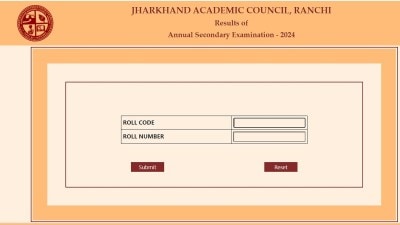- India
- International
For the mother and child
The proposed surrogacy bill addresses major ethical concerns.
 It is the duty of the state to protect the rights of children, under what is known as parens patria.
It is the duty of the state to protect the rights of children, under what is known as parens patria.
The Surrogacy (Regulation) Bill 2016 has been mocked for being discriminatory, illiberal and imposing the Bharatmata brand of values on citizens. The bill seeks to regulate surrogacy by prohibiting commercial surrogacy and barring certain persons such as unmarried couples, single persons, and same sex couples from availing of surrogacy services. It permits only childless heterosexual couples who have been married for not less than five years to avail of surrogacy, only from a “close relative”.
The bill has been criticised for interfering with the reproductive autonomy of citizens and discriminating against those who adopt an alternative lifestyle. Another ground for attack is interference with the “right” of women to eke out a living through surrogacy and violation of the “freedom of contract” between individuals to bear and supply a child through surrogacy. Critics opine that the proposed law will take commercial surrogacy underground.
The proposed law seeks to address two major ethical concerns: One, the practice of commercial surrogacy by putting the human womb on hire and two, the need to safeguard the interests of the unborn child. Renting the womb is akin to trading in human organs. There are serious ethical concerns about using the womb, repeatedly, on a professional basis. It is argued that surrogate mothers who come from impoverished circumstances are able, not only to sustain themselves and their families by playing professional surrogates but receive better nutrition and housing than they otherwise would. But the exploitation is hard to miss. A woman who earns a few lakhs for every surrogate child she bears is the proverbial golden goose for her family.
It is argued that most blood donors too donate blood for money, so why single out surrogacy? Surrogacy is far more serious because it involves the creation of human life. Besides, the mother’s body undergoes an upheaval with every birth. If the surrogate mother requires a caesarean section, she subjects herself to a major surgery she would not otherwise need.
Those who condemn the bill for restricting absolute reproductive rights fail to consider the matter from the standpoint of the most important person in this process — the unborn child. It is the duty of the state to protect the rights of children, under what is known as parens patria. The state must regulate surrogacy to safeguard the rights of children born through surrogacy. The child’s welfare overrides the reproductive autonomy of parents. When an abandoned child is adopted, the adoptive parents undergo a long drawn screening process. Can that process be much less stringent when a child is being brought into the world by a wholly artificial process?

The bill compels us to debate the evolving notion of a family in contemporary society. What constitutes a “family”? A social unit perhaps, where two adults in a long-term and committed relationship are able to raise a child. If that is the test, a couple married for some years should pass the test. As for live-in couples, the level of commitment to the relationship may vastly vary from case to case. Single parents may make very able parents but even when it comes to adoption, they need to meet a more stringent test than a couple. The ultimate consideration is a secure familial environment for the child, which should not be confused with a moral judgement on the relationship.
We allowed the country to grow into an international surrogacy hub, delivering thousands of surrogate babies to order across the world. But the irony should not be lost— India is hardly short on children. While encouraging artificial methods of child bearing with serious ethical concerns, can we remain oblivious to the reality that India is also home to the largest number of children abandoned by their biological parents?
EXPRESS OPINION
More Explained
Apr 19: Latest News
- 01
- 02
- 03
- 04
- 05









































